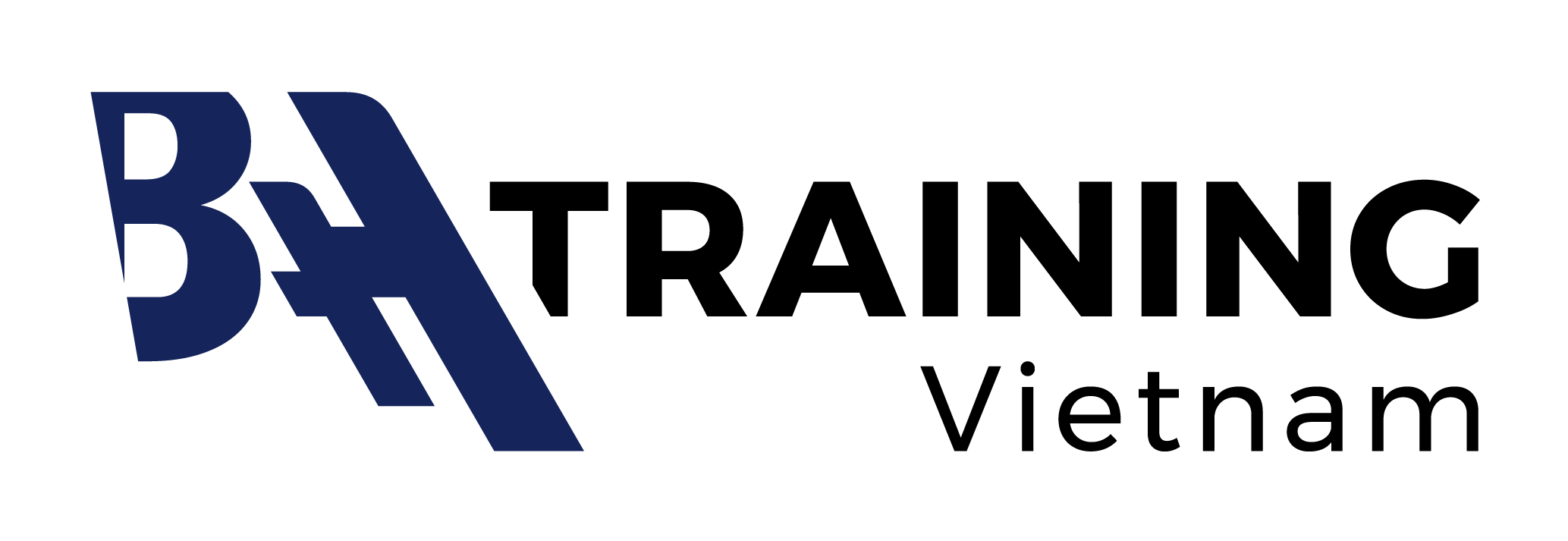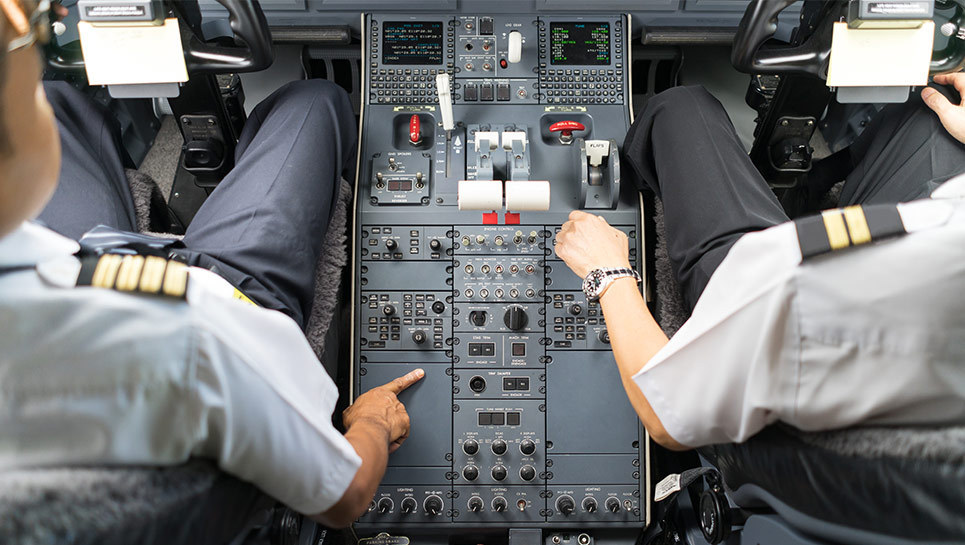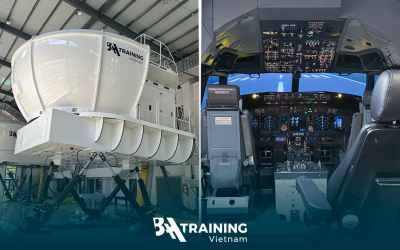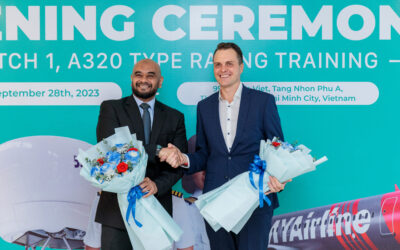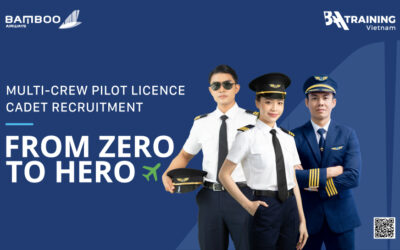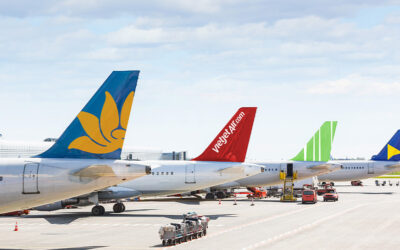It takes more than just passive listening, taking theory exams and accumulating flight hours to become a competent pilot. Therefore, the aviation industry has already started to adopt a new way of pilot training, based on the development of competencies. This is how the MPL training course was born, where a standardized set of competencies must be developed to a defined level of performance rather than just performing the tasks. What are those competencies and what is expected from a student after they have acquired their MPL licence?
What is competency?
Let’s start at the very beginning. According to job industry experts, competency itself is a dimension of human performance that is used to reliably predict successful performance on the job. A competency is manifested and observed through behaviours that mobilize relevant knowledge, skills and attitudes to carry out activities or tasks under specified conditions. In the aviation field, trainees have to successfully demonstrate competency by meeting the associated standards.
According to EASA, a training provider must ensure that their course design develops the required 9 core competencies of MPL course through their training and assessment plan based on the competency framework which we will overview in the following paragraphs.
Competency #1: Aeroplane Flight Path Management, Automation
Let’s start from the Aeroplane Flight Path Management, automation (FPM-A) competency, which enables a pilot to control the aircraft flight path through automation. By developing this competency, a student is expected to use appropriate flight management, guidance systems and automation, installed and applicable by the airline. He or she will also be able to monitor and detect deviations from the intended flight path and react quickly by taking an appropriate action.
After acquiring this competency, an aspiring future pilot will safely manage the flight path in order to achieve the most optimal operational performance. A trainee will be able to maintain the intended flight path during a flight using automation while managing other tasks and distractions.
Time is one of the most important factors in aviation. Therefore, FPM-A competency will allow a future pilot to appropriately and quickly select a level and mode of automation while considering the phase of flight and workload.
Competency #2: Aeroplane Flight Path Management, Manual Control
While developing the Aeroplane Flight Path Management, manual control (FPM-M) competency, a student is taught to control the aircraft flight path through a manual flight. The use of appropriate flight management, guidance systems and automation will be enhanced and the pilot will be able to manually control the aircraft, by taking into account its altitude, speed and thrust, as well as navigation signals or visual information. Other tasks, such as monitoring, managing and maintaining the flight path, effectively using flight guidance systems will be developed in order to optimise the operational performance.
Competency #3: Application of Knowledge
Another important competency, acquired during the MPL course, is the „Application of knowledge“, where a student is taught to apply his/her relevant knowledge in the operational environment and in scenario settings. While going through the path of this competency, the most attention is allotted to acquisition, application and correct identification of aviation knowledge. Mathematics, needed for operational situations, are also taught and developed there.
Competency #4: Application of Regulations and Procedures
Every competent pilot must be able to identify and apply appropriate procedures in accordance with published operating instructions and applicable regulations. With this competency, a student will be able to identify, follow appropriate information and correctly operate, monitor the aircraft systems.
Competency #5: Communication
This competency is about developing a student’s ability to communicate through appropriate means in normal and non-normal situations. The main focus is on asking relevant and effective questions, ensuring the needed information is shared and received, choosing appropriately what, when, how and with whom to communicate. Understanding and interpreting all the information correctly as well as listening or reading skills are also developed here.
Competency #6: Leadership and Teamwork
The main goal of developing leadership and teamwork competency is the ability to influence others so that they can contribute to a shared purpose. Also, this competency allows to appropriately collaborate in order to accomplish the goals of the team. A student must be able to create open communication, engage others and encourage team participation, show his/her initiative and give directions. Also, this competency teaches to give and receive constructive feedback, resolve conflicts in a constructive manner and, finally, exercise decisive leadership in all situations.
Competency #7: Problem-solving and Decision-making
Problem-solving and decision-making competency allow a student to identify problem precursors and resolve actual problems, using decision-making techniques, in a timely manner. Risks, priorities, fails, options, techniques are the main focus of this competency and the ability to effectively manage them is developed.
Competency #8: Situational Awareness (SA) and Information Management
Perceiving, comprehending, and managing information, as well as anticipating its effect on the operation is another important competency that must be acquired by every aviator. With this competency, a pilot will be able to monitor, identify and correctly manage the aircraft state and systems: energy state, flight path, the general environment of the flight and the aircraft and its gross errors. Additionally, a pilot will be taught to anticipate in each situation, develop effective plans based upon potential threats and respond to indications of situational awareness.
Competency #9: Workload Management
By acquiring workload management competency, an aspiring future pilot will be able to maintain available workload capacity through prioritisation and distribution of tasks, using resources. Self-control exercises, planning, time management, delegation and completion of tasks are mainly developed through this competency.
